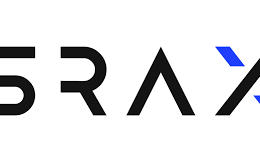Financial advisers face higher bar

Jim Wisdom
By Jim Wisdom
Privately-held employers are already held personally liable for not meeting their fiduciary responsibilities regarding their company-sponsored 401(k) retirement plans. On April 1, 2017, this fiduciary responsibility will also be applied to financial advisers of 401(k)s and IRAs with the Department of Labor’s new fiduciary rule.
This new rule will require financial advisers of 401(k) retirement plans and IRAs to meet a higher standard of care (the fiduciary standard). Today, the lower suitability standard is much more prevalent with financial advisers of 401(k) and IRAs — particularly those 401(k) plans with less than 100 employees and $5 million in plan assets.
Why is the new rule necessary? Forty years ago, the most common form of retirement plan was a Defined Benefit Pension Plan, in which the employer was responsible for providing a “defined benefit” which was usually based on a formula that included years of service and a stated percentage of the employee’s final years of compensation.
Today, the most common form of retirement plan is a Defined Contribution Plan such as a company sponsored 401(k), in which the employer defines the amount it will contribute (if anything), and the employee bears full responsibility for investment performance and the selection of the investment plan options available.
Now that the responsibility for retirement plan performance has shifted from the employer to the employee/participant, the DOL believes that plan participants are not adequately prepared to assume this responsibility. In addition, the DOL says participants are adversely impacted by financial advisers who provide “conflicted” financial advice under the suitability standard. Conflicted advice is when a financial adviser recommends an investment that may benefit the adviser more than the participant.
For example, in a February 2015 study of IRAs, the Council of Economic Advisers concluded that the aggregate annual cost to participants receiving conflicted advice is about $17 billion. This cost translates to participants receiving about 1 percent lower investment return each year. In other words, conflicted advice reduces what would be a 6 percent return to a 5 percent return.
Under the new fiduciary standard, the financial adviser’s responsibilities are both ethical and legal. Fiduciaries are required to act in the best interest of the party whose assets they are managing — at all times. Conversely, the suitability standard does not impose this requirement.
As noted in a recent column by Brian Menickella, a Forbes contributing editor on the retirement industry, the DOL’s rule redefines who will now be a fiduciary and also clarifies education from “advice.” It targets financial advisers of 401(k) plans and IRAs that are “brokers” and how they get paid. There has been a distinct difference between these two different types of advisers and this new rule aims to close that gap.
Menickella further states that under the new regulation, “employers will now have a new working relationship with their adviser if that adviser is a broker. This may include additional paperwork, possibly higher costs and a new set of limitations and exemptions.”
I recently asked Blake Willis of July Business Services, a prominent third party administrator and record keeper of privately held 401(k) retirement plans, if the new fiduciary rule presents more litigation risk for broker dealers (and any other advisers who also operate under the suitability standard). He said, “Definitely yes. No doubt about it.” He also added that broker dealers will have to enhance their oversight and compliance departments to make sure that their advisers are complying with the new legislation.
In summary, employers should consider asking their financial adviser if they are acting as a broker or as a Registered Investment Adviser (RIA fiduciary) on behalf of their company sponsored 401(k) retirement plan. If they are not an RIA acting in a fiduciary capacity, your liability and the cost of your retirement plan may increase if you continue with your current adviser.
Another way to state this is to ask yourself as the employer: Do I feel comfortable retaining a financial adviser for my firm’s 401(k) that is allowed to put his/her interests ahead of the interests of our employee participants? If the answer is no, you should consider retaining the services of a fiduciary. This decision is likely to not only keep you in compliance with the new fiduciary rule, but also to benefit your employees.
• Jim Wisdom, CFP, is an investment adviser representative based in Westlake Village.











